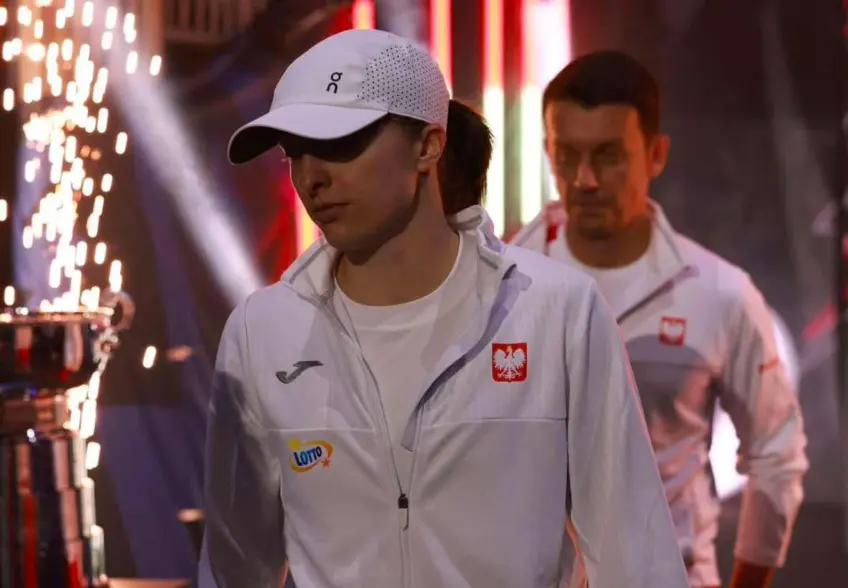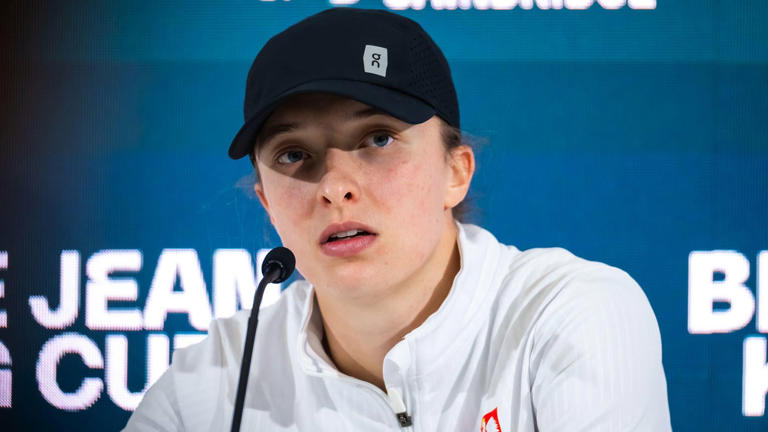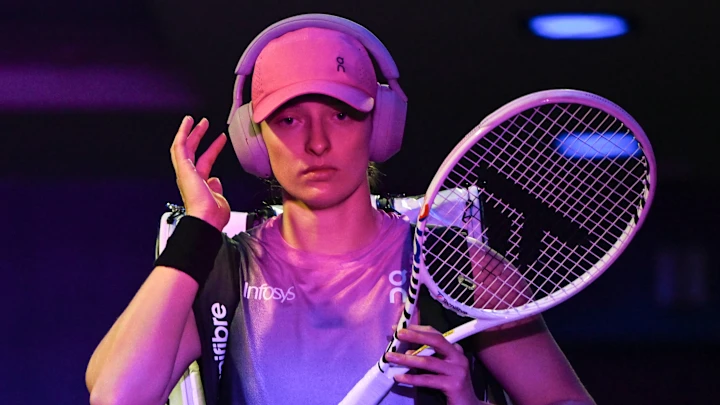Iga Świątek, the World No. 1 in women’s tennis, has recently made headlines—not just for her performances on the court, but also for a significant shift in her public relations strategy following a controversy that shook the tennis world. After allegations related to doping surfaced, Świątek and her team took swift action to manage her image and respond to the scrutiny she faced. This PR change marks an important moment in her career, as it not only reflects the pressure elite athletes face off the court but also highlights how she is navigating one of the sport’s most sensitive topics.

The Doping Controversy
In November 2024, Świątek became the subject of doping rumors after a report surfaced indicating that she had been flagged for a potential violation during a routine anti-doping test. The report claimed that an unusually high level of certain substances, which could enhance performance, was detected in Świątek’s system. However, these claims were quickly dismissed by her team, stating that the results were inconclusive and that there had been no formal charges brought against the 22-year-old.
Despite the quick refutation, the mere suggestion of a doping scandal sent ripples through the tennis community, igniting debates over fairness, integrity, and the pressures athletes face in maintaining peak physical performance. Świątek, known for her mental fortitude and focus, was suddenly thrust into the limelight for reasons beyond her tennis prowess.
The PR Change
In response to the doping allegations, Świątek’s team made an immediate decision to overhaul their public relations approach. Historically, the Polish champion has kept a relatively low profile off the court, preferring to let her tennis speak for itself. However, the allegations prompted a shift in strategy aimed at rebuilding her image and providing clarity to her fans and the general public.
Świątek’s social media channels were updated with a series of personal statements, where she reaffirmed her commitment to clean sport and pledged full cooperation with anti-doping authorities. Her new public-facing message emphasized transparency and accountability. “I want to assure my fans that I take the responsibility of being a role model very seriously,” Świątek wrote in a statement. “My team and I are fully committed to adhering to the rules and regulations of the sport. Clean tennis is something I believe in wholeheartedly.”
This more proactive approach to communication is a marked change from her usual more reserved style. It signals a recognition of the growing pressures on athletes to not only perform at the highest levels but also manage their public personas in a world where scrutiny is relentless and instant.
Balancing Pressure and Performance
As one of the most dominant figures in women’s tennis, Świątek has often been seen as the face of a new generation of athletes—one that is driven by not only physical strength but also mental resilience. Her rise to World No. 1 has been meteoric, with victories at the French Open, US Open, and numerous other titles that solidified her status as the future of the sport. However, with such success comes the spotlight, and with the spotlight comes intense pressure.
Athletes at the highest level face immense physical demands. For tennis players, maintaining peak physical condition requires not just hard training, but also careful attention to nutrition, recovery, and performance enhancement. This is where the issue of doping becomes particularly delicate. While the vast majority of athletes follow the rules, the pressure to stay ahead of competitors—combined with the temptation to use substances to maintain that edge—creates a minefield that can be difficult to navigate.
Świątek, whose playing style revolves around mental toughness as much as physical strength, is no stranger to the psychological pressures of being a top athlete. Yet, she has never been publicly linked to any wrongdoing in the past, and her PR team has worked hard to distance her from the allegations. In interviews after the controversy, Świątek emphasized her dedication to “doing the right thing,” reinforcing that the rumors would not affect her commitment to the sport.
Her quick response to the situation is a testament to her professionalism and maturity, and it also speaks to the changing expectations of athletes in the modern sports world. Gone are the days when stars could stay silent in the face of scandal. Now, athletes are expected to take control of their narrative, something Świątek’s team understood immediately.
The Role of Social Media in Crisis Management
In today’s world, social media plays a pivotal role in managing crises like the one Świątek faced. While traditional media outlets often sensationalize controversies, athletes can use their social media platforms to communicate directly with their fans and the public. Świątek’s team, recognizing the power of these platforms, took swift action to maintain transparency and deliver her message in a timely manner.
She used her Instagram and Twitter accounts to express her thoughts and address the rumors. These platforms allowed her to speak directly to her millions of followers and let them know that she was still focused on her game. It’s no surprise that her fans showed overwhelming support, flooding her posts with messages of encouragement and belief in her integrity.
While the doping controversy had the potential to derail Świątek’s image, her openness and decisive action helped mitigate the damage. By addressing the issue head-on, she managed to shift the narrative back to her achievements and commitment to clean sport.
Looking Ahead: Świątek’s Continued Legacy in Tennis
As the dust begins to settle around the doping rumors, Świątek’s PR shift also marks a new phase in her career. It’s not just about tennis anymore; it’s about how she handles herself in the face of adversity. The ability to handle such situations with grace and professionalism will be crucial in shaping her legacy both as an athlete and as a public figure.
Świątek’s future in tennis looks bright. With her mental resilience, powerful game, and growing popularity, she is well-positioned to continue dominating the sport for years to come. If anything, her response to the doping allegations has only strengthened her position as a role model for aspiring athletes. She’s shown that true champions are not just those who win on the court but those who navigate life’s challenges with integrity and authenticity.
The lessons Świątek is learning now will undoubtedly make her even stronger moving forward. She’s proven that no matter the obstacles—whether physical, mental, or personal—she’s ready to face them head-on and continue to represent the sport she loves. Her actions, both on and off the court, will serve as a guide for future generations of tennis players.
Conclusion
Iga Świątek’s recent PR change after the doping controversy highlights the importance of athlete image management in today’s media-driven world. Her swift and transparent response not only protected her reputation but also reinforced her commitment to fair play and clean sport. As her career continues to flourish, Świątek has demonstrated the power of resilience in the face of adversity, solidifying her place as one of tennis’ most admired stars.

